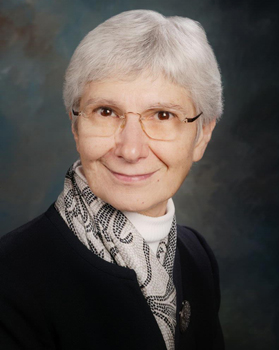| Sun | Mon | Tue | Wed | Thu | Fri | Sat |
|---|---|---|---|---|---|---|
| 1 | 2 | 3 | 4 | 5 | ||
| 6 | 7 | 8 | 9 | 10 | 11 | 12 |
| 13 | 14 | 15 | 16 | 17 | 18 | 19 |
| 20 | 21 | 22 | 23 | 24 | 25 | 26 |
| 27 | 28 | 29 | 30 | 31 |
CATEGORIES
RECENT ENTRIES
BLOG ROLL
Well-read lives
Behind every Norman Maclean Award winner, another inspiring teacher.
 For its few thousand attendees, Alumni Weekend 2010 was a blast. But possibly none of them had quite as good a time as Amy A. Kass, AB’62, senior lecturer in the College. At Alumni Convocation Saturday morning, Kass received one of two Norman Maclean Faculty Awards, voted on by alumni. Later that day, she and her husband, Leon Kass, AB’58, MD’62, the Addie Clark Harding professor in the Committee on Social Thought and the College, were the honored guests at a reception to mark their retirement from the University. About 180 former students and other guests showed up to thank two teachers who made the necessity of their Hum and Soc requirements a lasting virtue.
For its few thousand attendees, Alumni Weekend 2010 was a blast. But possibly none of them had quite as good a time as Amy A. Kass, AB’62, senior lecturer in the College. At Alumni Convocation Saturday morning, Kass received one of two Norman Maclean Faculty Awards, voted on by alumni. Later that day, she and her husband, Leon Kass, AB’58, MD’62, the Addie Clark Harding professor in the Committee on Social Thought and the College, were the honored guests at a reception to mark their retirement from the University. About 180 former students and other guests showed up to thank two teachers who made the necessity of their Hum and Soc requirements a lasting virtue.
Each Alumni Award recipient was asked to provide a personal statement. The Norman Maclean award honors outstanding teaching, and Kass devoted part of her statement to recognizing a standout teacher of her own, the late Karl Joachim Weintraub, AB’49, AM’52, PhD’57. “Thanks to my teacher and then hero, Jock Weintraub,” she wrote, “I discovered that behind dry books and documents were living authors, agitating and exploring urgent questions, pressing for them and for me.”
I spoke to Kass during the last week of classes and asked her to share some memories of Weintraub. She offered one of her earliest:
The first quarter I was here, one of the courses I took was Western Civ. Mr. Weintraub was not then the popular teacher that he became. Everyone wanted to get into Mr. Mackauer’s section, the leavings went to Mr. Weintraub, and I was part of that. But oh my, what an impact he had on me. I think it was the end of the second week of class when he said to me in his heavy German accent, “Miss Apfel. Come to my office, I want to speak with you.” He was tall. He always taught standing up. And he never lost a grain of his accent all the years he was here. We were all intimidated by him, and I, perhaps, especially so.
So I went with fear and trembling to his office, and he said to me, “What are you going to do in graduate school?” I said, “What? I haven’t given it any thought.” And I made some kind of nonsensical conversation for the next ten minutes until it was polite enough for me to leave. As I was running down the stairs from his office on the fifth floor of Gates-Blake, I stopped the first person I met and asked, “What is graduate school?”
Coming from my family, I knew one and only thing: one went to college in order to become a doctor, and, if not a doctor, then a lawyer. What graduate school was or why one might go was beyond me. But shortly after I figured that out, I also figured out that I wasn’t going to be premed. I convinced my father that I could do it but didn’t want to, and I proceeded to major in Tutorial Studies, which involved creating one’s own program. At least for me, that meant the opportunity to concentrate on historiography or, basically, to major in Jock Weintraub. Years later, when we returned to Chicago, Jock, then dean of the humanities, was largely responsible for getting me a job teaching in the College.
The end of that story was the beginning of another, a story that became, as Kass put it in her statement of purpose some 34 years later, her “life-work: teaching people to read great books slowly and critically, to refine their ideas, to enlarge their sympathies, and to aspire to a richer life beyond self-centered quests for gain, fame, or power. What wonderful gifts!”
The people she taught agree.
Laura Demanski, AM’94
June 11, 2010
